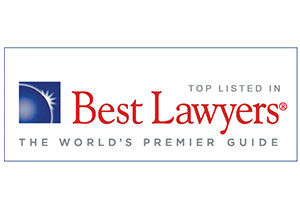Accountant malpractice liability claims typically decline during a strong economy like we have now, according to a recent article in Accounting Today titled, “Accountants’ Malpractice Liability: Fewer Claims but More Risks.”
Numerous accountant malpractice liability risks remain, however, including but not limited to emerging issues in cybersecurity, online sales tax questions in the wake of the Wayfair decision, and unique regulatory concerns in the rapidly growing cannabis industry. Traditional issues continue to pose risks, such as trustee-related claims that are often related to dysfunctional family relationships.
Industry experts note that accounting clients tend to be primarily concerned with earning money, and as a result are less likely to bring claims during a period of economic prosperity. Accountant malpractice liability claims often increase following a period of economic contraction, but by the time the economy slows it is too late for an accounting firm to retroactively institute new risk management processes.
 For this reason, accountant malpractice liability experts recommend that accounting firms avoid complacency during times of prosperity by remaining vigilant about protecting themselves against future risks. Information security and fraud detection remain key concerns, and in fact several large law firms have been in the news recently due to cybersecurity risks. A loss prevention expert at accounting firm insurer CAMICO Mutual Insurance Company advises that accountants maintain a healthy skepticism on all forms of cyber communication, especially email.
For this reason, accountant malpractice liability experts recommend that accounting firms avoid complacency during times of prosperity by remaining vigilant about protecting themselves against future risks. Information security and fraud detection remain key concerns, and in fact several large law firms have been in the news recently due to cybersecurity risks. A loss prevention expert at accounting firm insurer CAMICO Mutual Insurance Company advises that accountants maintain a healthy skepticism on all forms of cyber communication, especially email.
Cybersecurity Risks for Accountants
Currently, federal regulations pertaining to cybersecurity mostly affect the healthcare and financial services industries. The HIPAA Omnibus Rule, 78 Fed. Reg. 5566 (Jan. 25, 2013) expanded many of the privacy regulations that apply to healthcare providers to include their business associates as well. CPA firms that access patient billing records through the course of providing services to healthcare providers fall under the category of business associates, and penalties of up to $1.5 million may be imposed for each rule violation.
The Federal Trade Commission Safeguards Rule, 16 C.F.R. Part 314, mandates that financial institutions ensure security of private consumer information. Specifically, institutions are required to develop and implement a written plan for securely handling information. CPA firms that prepare tax returns qualify as financial institutions, and as such must abide by the rule. In the past year, the U.S. Securities and Exchange Commission (“SEC”) and the FTC have enforced violations resulting in consent agreements and considerable fines.
In the past, CPA firms were most often targeted by cybercriminals using ransomware, which prevents companies from accessing data until they pay a specified ransom amount. The FBI advises against paying the ransom and provides resources for assisting businesses in dealing with ransomware attacks.
More recently, however, CPA firms have been targeted by cybercriminals seeking personal information of individual tax clients. This information is then used to prepare fraudulent tax returns and obtain refunds. IRS Publication 4557, Safeguarding Taxpayer Data: A Guide for Your Business (2018) provides specific guidance for dealing with such attacks.
Cannabis Industry Risks for Accounting Firms
Providing services to the cannabis industry can represent a major risk in many ways, particularly since many states have legalized cannabis but the federal government has not. Accounting firms are advised to fully educate themselves on potential business risks related to the cannabis industry, including possible allegations of money laundering and other criminal activities.
Wayfair Decision and State Tax Implications
In South Dakota v. Wayfair, Inc., 138 S. Ct. 2080 (2018), the U.S. Supreme Court eliminated the physical presence requirement previously needed for businesses to collect and remit state sales tax. Instead, the standard is now whether a company’s activity, regardless of its physical presence, has a substantial “economic nexus” to a state. If so, the state may impose an obligation on the seller to collect that state’s sales tax.
Wayfair implies that accountants must now understand their client’s business more thoroughly than ever, with a focus on how companies make their sales. This will allow the accountant to assess whether their business client has a sufficient nexus to a particular state and then determine the resulting tax liability. The nexus is determined partly by sales volume, and it is important to be aware of not only state laws but rules in specific municipalities and counties.
About the Professional Liability Practice at DLD Lawyers
DLD Lawyers is a leading professional liability defense firm with over two decades of experience representing a wide array of professionals in malpractice, director and officer (D&O) and errors and omissions (E&O) claims.
Experienced accountant malpractice liability attorneys represent accountants individually, accounting firms, insurance agents and brokers, attorneys, architects, engineers, and real estate professionals.
Due to the complexities often involved in professional liability cases, DLD Lawyers initiates an early investigation and evaluation of claims, as well as the retention of the necessary experts to defend those claims.
Disclaimer
The information in this article is for general purposes only and does not constitute, and should not be taken as, legal advice for any individual case or situation. This information is not intended to create, and does not create, an attorney-client relationship with DLD Lawyers. No content in this article may be reproduced by any means or in any medium without prior written permission of DLD Lawyers.



